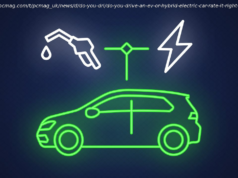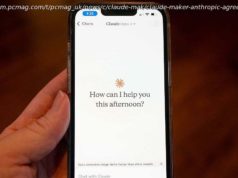Apple’s 2018 iPhone range is still a mystery. How many models will launch? What will they be called, and how big will the screens be? Whether you’re looking for the iPhone X Plus, the iPhone 9, the iPhone 11, or just the iPhone 8S, here are all the rumors about Apple’s 2018 iPhones.
What is going on with Apple’s 2018 iPhone range? Expected to launch later this year, rumors are spreading about a 6.5-inch iPhone X Plus, a 5.8-inch iPhone X, and a 6.1-inch iPhone that may be cheaper than the other two models. The names are not certain either, and the 2018 iPhone models have also been linked with the names iPhone 9, and iPhone 11, due to the iPhone X’s introduction in late 2017. There is also the chance Apple will come up with an entirely new way of naming its iPhones.
There are a lot of intertwined rumors, sometimes related to each other, sometimes not, and almost always confusing. We’ve done our best to make sense of them, so here is our rundown of what to expect from the 2018 iPhone range.
What will the new iPhone models look like? Right now it looks like Apple will release at least three new iPhones in 2018 — a 5.8-inch phone, a 6.1-inch, and a 6.5-inch model. A look at the 6.5-inch iPhone X Plus and the smaller, 6.1-inch iPhone with an LCD screen came from dummy units of the devices leaked on Twitter. Dummy units have been commonly leaked before, and are often 3D mockups based on either specifications used by manufacturers, or specs obtained from leaks. Therefore they should be treated as visualizations of what we currently expect a phone to look like.
The design of the iPhone X Plus does not differ greatly from the existing iPhone X, with a dual, vertically stacked camera lens and what looks like a glass body. The 6.1-inch iPhone, which will apparently have an LCD screen for a lower price, also has a notch on the screen which may enable Face ID technology. Previous leaks have shown all three 2018 phones will have screen notches, but the 5.8-inch model has not been pictured above. The phone also has a single lens camera on the back.
The 6.5-inch, OLED iPhone X Plus has been rumored to look like the iPhone X already analyst Ming-Chi Kuo claiming the phone will be sold in three colors at launch: Black, white, and gold. He continues to add that Apple’s 6.1-inch phone, possibly called the iPhone 8S, will feature an aluminum body, LCD display, and Face ID. This phone will be the least expensive of the trio and will be available in gray, white, red, blue, and orange. However, we’re not at all certain about the color lineup just yet as another analyst predicted this model would be available in pastel shades including yellow, pink, and blue.
The final phone to round up the iPhone lineup for 2018 will be one with a 5.8-inch OLED display that looks similar to the current iPhone X.
Almost every iteration of the iPhone has seen some internal improvements that make it faster, stronger, and better than the iPhones that came before and, for the most part, we expect that to continue — with one exception: The cellular modem.
Qualcomm CFO George Davis told investors, analysts, and the press “We believe Apple intends to solely use our competitor’s modems rather than our modems in its next iPhone release.” Since the announcement of the next iPhone is likely coming within the next few months, we can be sure that Davis is certain Qualcomm modems will not be used in the upcoming iPhone.” If Apple does rely solely on Intel’s modems for the next-gen iPhone, data speeds may be slower than that of competing handsets featuring the Qualcomm modem. However, this may only affect phones connected to certain networks, in certain regions around the world.
2018 iPhones may be one of the first phones to boast full eSIM support, according to a report from Barrons . eSIMs are basically SIM cards that are built right into a phone, allowing you to switch between carriers whenever you want — without the need to go to a store and pick up a physical SIM card. That’s perfect for when you’re traveling to a new country, or even simply to a spot with bad coverage. Apple already uses eSIMs in the Apple Watch and some iPad models, but implementing it into a phone takes things to a new level — and could make carriers a little nervous given how easy it would be for customers to switch to a new carrier.
Apple partner Taiwan Semiconductor Manufacturing has begun production of the next series of the chip we expect to see in this year’s iPhone. Likely named the A12, the new chip will apparently use a 7-nanometer design that will help make it smaller, faster, and more power efficient than the 10-nanometer chips currently in circulation in the latest series of the iPhone.
A benchmark test for an unreleased iPhone running iOS 12 showed the mystery device running 4GB of RAM, higher than is available in current iPhone models. This may join the new processor for additional performance, but benchmark results are easily faked and cannot be taken as absolute proof.
Apple removed the headphone jack from the iPhone a few years ago, but now it’s possible the next iPhone may not ship with a Lightning to 3.5mm headphone jack adapter. A new report from MacRumors, which cites Barclays, says that Apple may not include an adapter with the iPhone X Plus — so if you use wired headphones, you’ll have to buy them separately.
All this joins a whole raft of further speculation surrounding components and suppliers. The 2018 iPhone may come with dual-SIM capabilities in China, or with the Apple SIM — a non-removable SIM already used in the iPad Pro — alongside a regular SIM in other regions.
KGI Securities analyst Ming-Chi Kuo predicted 2018 iPhones will feature baseband chips from Intel, not Qualcomm. It’s also possible the next iPhone may offer 5G technology, Business Insider reports, based on Apple applying to the Federal Communications Commission for a new wireless technology called millimeter wave. This technology allows devices to access more bandwidth than is currently possible on existing cellular networks.
In 2017, we reported that Apple may be creating a special version of the Pencil for at least one model of this year’s iPhone. While the Pencil debuted with the iPad Pro in 2015, the company has yet to make a Pencil that is compatible with the iPhone.
AppleInsider reports that Apple has developed a relationship with LG Innotek to create flexible circuit boards for the next iPhone. These flexible circuit boards, already used in some devices like the Samsung Galaxy, would allow Apple to create an iPhone with a curved display.
We have been used to two new major iPhone models each year, but the iPhone X in 2017 changed that. What has Apple planned for 2018, when will the models arrive, and how much will they cost? There has been little talk of an iPhone 8S or iPhone 8S Plus; but according to a report from Bloomberg, Apple will launch a 6.5-inch iPhone, which may be the iPhone X Plus and its largest iPhone ever, along with a less expensive iPhone built using cheaper materials.
AppleInsider reported the budget iPhone will have an LCD screen and be priced at $650-$750. KGI Securities says it will cost between $700 and $800. This may, or may not, be the iPhone SE 2. Another KGI Securities report says Apple wants to “ reduce costs and selling prices” before the release of the next iPhone.
A tweet by a reporter from Business Insider, quoting RBC Capital analyst Amit Daryanani, predicts the 6.1-inch LCD model will start at $700 and the 5.8-inch OLED model could start at $899 — leaving the iPhone X Plus to start at $999. Daryanani believes Apple will lower the starting price of the next-generation iPhone X by $100 in order to strengthen and boost sales of the device. That way, the company can then push the iPhone X Plus into the $999 price range instead.
As for release date information, we’re anticipating Apple will announce its newest iPhones in early September. When you will be able to get the phones in your hands, however is another question. Katy Huberty, an analyst for Morgan Stanley, predicts both the 5.8-inch and 6.5-inch iPhones will be available by the end of September. The 6.1-inch “budget” iPhone, however will not start shipping until early October. Huberty attributes the delay for the 6.1-inch model to manufacturing issues. Apparently Apple is facing issues “with LED backlight leakage [that] has caused a one-month delay in mass production of the 6.1 LCD iPhone.”
The size of the screen is one of the main differentiating factors between iPhone models. Rumors suggest the 2018 models will come with a 6.5-inch screen, a 6.1-inch screen, and a 5.8-inch screen. To get an idea of how this will look, an image was posted on Twitter showing glass screens from the three models next to each other. It’s not certain whether this is a genuine image or not, but the leaker has a decent track record with Apple leaks, but even if it’s a concept it’s still an interesting visual reference point for the potential iPhone lineup this year.






